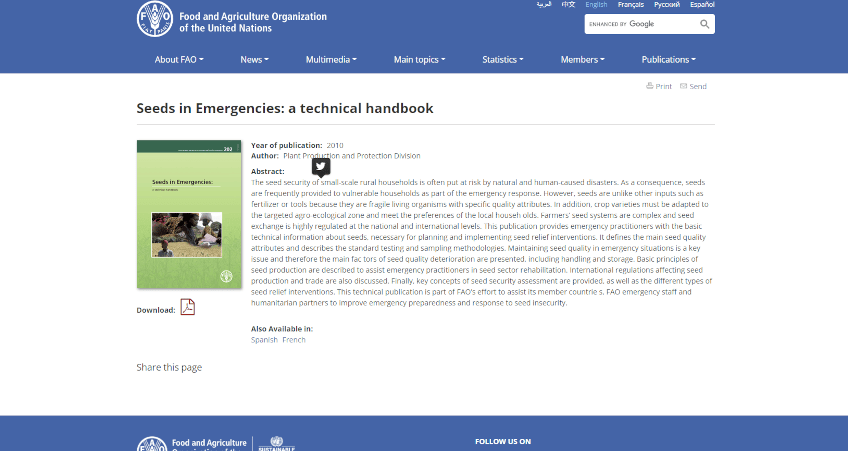Author: FAO; 2010
Keywords: small seed enterprises; Farmers’ seed systems; emergencies
The seed security of small-scale rural households is often put at risk by natural and human-caused disasters. As a consequence, seeds are frequently provided to vulnerable households as part of the emergency response.
However, seeds are unlike other inputs such as fertilizer or tools because they are fragile living organisms with specific quality attributes. In addition, crop varieties must be adapted to the targeted agro-ecological zone and meet the preferences of the local households. Farmers’ seed systems are complex and seed exchange is highly regulated at the national and international levels. This publication provides emergency practitioners with the basic technical information about seeds, necessary for planning and implementing seed relief interventions. It defines the main seed quality attributes and describes the standard testing and sampling methodologies. Maintaining seed quality in emergency situations is a key issue and therefore the main factors of seed quality deterioration are presented, including handling and storage. Basic principles of seed production are described to assist emergency practitioners in seed sector rehabilitation. International regulations affecting seed production and trade are also discussed. Finally, key concepts of seed security assessment are provided, as well as the different types of seed relief interventions. This technical publication is part of FAO’s effort to assist its member countries, FAO emergency staff and humanitarian partners to improve emergency preparedness and response to seed insecurity.
Click on the following link to access the content: https://www.fao.org/publications/card/en/c/0c46c45f-eeec-5dcb-8c22-519f116297d1/
© FAO
